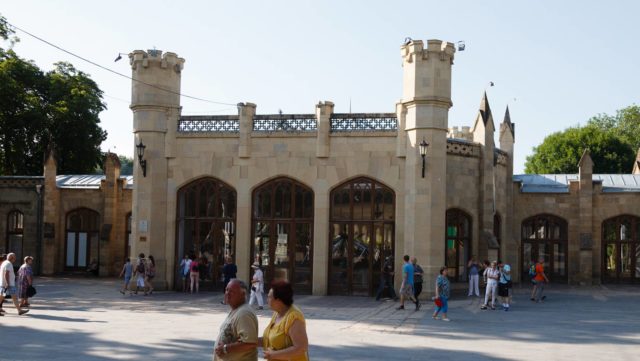
Moscow Works to Block North Caucasus Nations From Making Common Cause
By:

Moscow’s ability to run the country depends on keeping the non-Russians apart and at odds with each other. This gives the center the ability to play one group off against another as well as prevents the non-Russians from forming a common front against ethnic Russians. Consequently, any cooperation among non-Russians on any issue quickly becomes a matter of extreme concern to the Kremlin, on which it can be counted on to take quick action. Even so, however, the attractions of cooperation are great; and Moscow may not succeed.
Earlier this month, the Russian Congress of the Peoples of the Caucasus and the Inter-Regional “New World” Organization announced plans to hold a conference in Pyatigorsk to demand the restoration of direct elections of the heads of regions and republics. More than 100 representatives of the titular nationalities of Adygea, Karachaevo-Cherkessia, Kabardino-Balkaria, North Ossetia, Ingushetia, and Dagestan announced they were coming (Caucasus Times, January 22).
Such a meeting—especially in the still restive North Caucasus—would have constituted a serious challenge to a Russian law Vladimir Putin signed in April 2013 that requires the subjects of the Russian Federation to give up their right to directly elect their heads. As a result, the Russian authorities moved swiftly, first denying the group the right to meet in Pyatigorsk and then, in an effort to contain and coopt, offering to host an alternative session not in the North Caucasus but in Moscow (Kavkazsky Uzel, January 24; Chernovik, January 24).
Organizers say they will still try to make the same points, holding common sessions and breakout roundtables on the best way to promote the return of direct elections both via official structures and popular action. Their conference will build on the activities of groups in Ingushetia, Karachaevo-Cherkessia and Dagestan over the last year. Among these was most prominently the declaration of the council of taips (subgroups of the Ingush nation) calling for the restoration of direct elections there. That was followed by similar actions in the other two republics (On Kavkaz, January 21).
By forcing the organizers to move the meeting to Moscow, the Russian authorities likely will succeed in reducing the number of people attending—it simply costs far more to travel to the Russian capital than to Pyatigorsk. The central government will also be better positioned to control the media coverage in the North Caucasus the session might have been expected to attract had it been allowed to convene at its planned venue. But the Russian action may backfire by attracting the attention of other non-Russians far beyond the Caucasus to this cause, especially given the increasingly overheated atmosphere in advance of the March 18 presidential elections.
That is especially likely if, as expected, the meeting nonetheless goes ahead with an appeal like the one the Ingush taips issued earlier. That group declared that “the deprivation of citizens and entire ethnic communities of the right to elect and be elected is a clear violation of the Constitution of the Russian Federation and should be subject to criminal penalties. This anti-constitutional law unceremoniously and demonstratively removes the population from participation in the political and social life of the country.” In an election year, such argumentation could generate some support across the country.



